Best Backup Generators 2024
- January 23, 2024
- 1 comment
In the face of unexpected power outages, being prepared is key. This article not only introduces you to the world of backup generators, a steadfast solution for keeping your home powered and protected, but also provides a curated list of top-performing models. Get ready to explore how these power-packed allies can offer you peace of mind and uninterrupted comfort, ensuring you’re well-equipped for when the lights go out.
List of the Best Back Generators:
- Champion Power Equipment 14kW 100837 Home Standby Generator
- Champion Power Equipment 12.5-kW 100179 Home Standby Generator
- Champion Power Equipment 8.5-kW 100177 Home Standby Generator
- Generac 22Kw 7042 Standby Generator
- Generac 22kW 7043 Air Cooled Standby Generator
What Is a Backup Generator?
A backup generator is your home’s plan B for electricity during a power outage. It’s a portable unit that steps in to keep your lights, fridge, and other essentials running when the main power supply cuts off. Unlike its standby cousin that jumps into action automatically, a backup generator requires a hands-on approach. You’ll need to start it manually and connect it to your appliances using extension cords. It’s a straightforward, temporary solution to keep your household humming until the main power returns.
1. Champion Power Equipment 14kW 100837 Home Standby Generator
Specifications
- Wattage: 14 KW
- Fuel Type: Propane (LPG), Natural Gas (NG)
- Power Source: Battery Powered
- Item Weight: 482 Pounds
- Voltage: 24 Volts
- Output Wattage: 14 Kilowatts
- Product Dimensions: 52″L x 32.1″W x 52.1″H
- Engine Type: 4 Stroke
- Tank Volume: 5 Gallons
- Engine Displacement: 754 Cubic Centimeters
- Frequency: 60 Hz
- Running Wattage: 14000 Watts
The Champion Power Equipment 100837 Home Standby Generator represents a seamless blend of power, reliability, and advanced technology. Designed to deliver a robust 14 kilowatts of continuous power, this generator ensures that your home remains operational and comfortable, even during extended power outages. Operating on either propane or natural gas, it provides an eco-friendly power solution without the need for constant refueling. The inclusion of the aXis ATS200 Whole House Automatic Transfer Switch elevates the system’s capability, offering managed power for your entire home with Wi-Fi setup and advanced load management features. The generator’s quiet operation at 62 dBA, combined with a durable design that withstands extreme temperatures, makes it a top-tier choice for homeowners seeking uninterrupted power with minimal noise disruption.
Pros
- Offers 14,000 watts of continuous power on propane and 12,500 watts on natural gas.
- The aXis ATS200 Automatic Transfer Switch provides managed power for the entire home, with the capability to manage unlimited high-demand loads.
- Operates effectively in temperatures ranging from -22° F to 104° F without a cold weather kit.
- Advanced sound dampening and low-tone muffler ensure operation at a residential-friendly 62 dBA noise level.
- Includes a 10-year limited warranty on the generator and a 2-year limited warranty on the ATS, backed by free lifetime technical support.
Cons
- At 482 pounds, the generator is quite heavy, which might limit mobility and installation options.
- The advanced features and load management system may require professional installation and setup due to their complexity.
2. Champion Power Equipment 12.5-kW 100179 Home Standby Generator
Specifications
- Wattage: 12,500 watts
- Fuel Type: Propane (LPG), Natural Gas (NG)
- Power Source: Battery Powered
- Item Weight: 455.5 Pounds
- Voltage: 120 Volts
- Output Wattage: 12.5 Kilowatts
- Product Dimensions: 52.4″L x 33.5″W x 32.1″H
- Engine Type: 4 Stroke
- Tank Volume: 5 Gallons
- Engine Displacement: 717 Cubic Centimeters
- Frequency: 60 Hz
- Running Wattage: 12,500 Watts
The Champion Power Equipment 12.5-kW 100179 Home Standby Generator is engineered to provide a seamless and robust power supply for your home, ensuring comfort and continuity even during unexpected power outages. This generator, equipped with the ATS100 Outdoor-Rated Automatic Transfer Switch, embodies reliability and efficiency. It boasts a substantial 12,500 watts of continuous power on propane and 11,000 watts on natural gas, meaning it’s ready to tackle the demands of your entire home without the need for manual refueling. The unit’s 24-volt starting system performs reliably in extreme temperatures, ranging from -22° F to 104° F, eliminating the need for a cold weather kit. Its quiet operation, thanks to advanced sound dampening and a low-tone muffler, ensures that your home’s tranquility is undisturbed.
Pros
- Offers consistent and powerful performance, ensuring your home’s essential and high-demand appliances remain operational during power outages.
- The ATS100 transfer switch provides automatic operation, seamlessly switching power from the grid to the generator during outages and back when power is restored.
- Features an innovative ‘gullwing’ enclosure for easy access to the engine and control panel, alongside a digital aXis Controller™ for programmable, upgradable standby power.
- Operates at a residential-friendly 63 dBA noise level and includes safety features like a 24-volt starting system that works reliably under extreme weather conditions.
- Comes with a 10-year limited warranty and free lifetime technical support, offering peace of mind and reliable customer service.
Cons
- Weighing 455.5 pounds, installation may require careful planning and possibly professional assistance.
- While listed as portable, the size and weight of the unit might limit ease of movement and placement options.
3. Champion Power Equipment 8.5-kW 100177 Home Standby Generator
Specifications
- Wattage: 8,500 watts
- Fuel Type: Propane (LPG), Natural Gas (NG)
- Power Source: Battery Powered
- Item Weight: 394.1 Pounds
- Voltage: 120 Volts
- Output Wattage: 7,500 Watts
- Product Dimensions: 52.4″L x 33.5″W x 32.1″H
- Engine Type: 4 Stroke, 439cc OHV
- Engine Displacement: 439 Cubic Centimeters
- Frequency: 60 Hz
- Running Wattage: 8,500 Watts
The Champion Power Equipment 8.5-kW 100177 Home Standby Generator is engineered for reliability and peace of mind, providing seamless 24/7 power to your home. This robust unit, powered by either propane or natural gas, delivers consistent and efficient energy without the need for manual refueling. Featuring the ATS50 – a 50 amp, 10 circuit, outdoor-rated automatic transfer switch – the system ensures your essential power needs are met with precision and ease. Designed to perform in extreme temperatures, ranging from -22º F to 104° F, and equipped with a sophisticated 24V starting system, this generator stands ready to face the harshest conditions. Its quiet operation, marked by a specially designed low-tone muffler and sound dampening liner, ensures that your home environment remains undisturbed.
Pros
- Offers 8,500 watts of continuous power on propane and 7,500 watts on natural gas, ensuring that your home remains fully functional during outages.
- The ATS50 transfer switch automates the power transfer process, providing hassle-free operation and ensuring your home is always powered.
- Built to operate reliably in extreme weather conditions without the need for a warming kit.
- The unit operates at a residential-friendly 59.5 dBA noise level, thanks to its advanced sound dampening technology and low-tone muffler.
- Features an innovative gull-wing design for easy maintenance and an all-weather design that is rust and corrosion-resistant.
Cons
- Weighing in at 394.1 pounds, the unit may require careful planning for installation and placement.
- Given its dimensions, users need to ensure they have adequate space for safe installation and operation.
4. Generac 22Kw 7042 Standby Generator
Specifications
- Wattage: 22 KW
- Fuel Type: Natural gas or LP gas
- Power Source: Natural gas or LP gas
- Recommended Uses: Residential
- Item Weight: 476 Pounds
- Voltage: 120 Volts
- Product Dimensions: 48″L x 25″W x 29″H
- Engine Type: 4 Stroke
- Engine Displacement: 439 Cubic Centimeters
- Frequency: 60 Hz
The Generac 22Kw 7042 Standby Generator stands as a paragon of resilience and reliability, offering an unrivaled power solution for residential use. With an impressive output of 22 KW, this generator ensures that your home remains a sanctuary of comfort and safety, even during extended power outages. It operates smoothly on either natural gas or LP gas, providing flexibility and convenience to suit your specific needs. Notably, the Generac’s True Power Technology delivers best-in-class power quality with less than 5% total harmonic distortion, guaranteeing the seamless operation of your sensitive electronics and appliances. The robust, all-weather aluminum enclosure is designed for durability, with three removable sides for ease of access during installation, service, and maintenance.
Pros
- With 22 KW, it’s capable of powering your entire home, keeping essential appliances and systems operational during outages.
- True Power Technology ensures less than 5% total harmonic distortion, making it safe for sensitive electronics.
- Can operate on either natural gas or LP gas, providing flexibility and ease of fuel sourcing.
- The Generac Evolution Controller features LED indicators for generator status, utility power presence, and maintenance alerts.
- The tough all-weather aluminum enclosure with removable sides is designed for longevity and easy maintenance access.
Cons
- Weighing 476 pounds with considerable dimensions, the unit requires careful planning for placement and installation.
- Essential components like the battery and automatic transfer switch are not included and need to be purchased separately.
5. Generac 22kW 7043 Air Cooled Standby Generator
Specifications
- Wattage: 22,000 watts
- Fuel Type: Natural Gas or LP Gas
- Recommended Uses: Residential use
- Item Weight: 466 Pounds
- Voltage: 240 Volts
- Output Wattage: 22,000 Watts
- Product Dimensions: 48″L x 25″W x 29″H
- Engine Type: Generac G-Force 1000 Series
- Engine Displacement: 999 Cubic Centimeters
- Frequency: 60 Hz
- Starting Wattage: 22,000 Watts
The Generac 22kW 7043 Air Cooled Standby Generator is a fortress of reliability and high-performance, designed to keep your home operational and your mind at ease during power outages. With a substantial 22,000 watts of output, this generator is more than capable of powering an entire household, ensuring that everything from security systems to household appliances continues running smoothly. The integration of advanced features like Digital Display, Overload Protection, and Automatic Voltage Regulation, combined with the robust G-Force 1000 Series engine, makes this generator a pinnacle of power provision for residential use. The Mobile Link Wi-Fi connectivity feature allows you to monitor the generator’s performance remotely, adding an extra layer of convenience and control.
Pros
- Offers an impressive 22,000 watts, ensuring comprehensive coverage and protection for your entire home during power outages.
- Equipped with True Power Technology for less than 5% total harmonic distortion, guaranteeing clean and stable power for sensitive electronics.
- Mobile Link Wi-Fi connectivity provides the convenience of monitoring and managing the generator remotely.
- Features a fully enclosed, all-weather aluminum enclosure with a smart switch, ensuring longevity and secure operation in various conditions.
- The G-Force Engine is purpose-built to handle demanding usage with reduced maintenance requirements, enhancing the generator’s lifespan.
Cons
- Professional installation by a certified and licensed electrician is recommended, which may add to the overall cost.
- Weighing 466 pounds, the generator requires a well-thought-out placement plan and possibly professional assistance for installation.
Comparison Table of the Best Standby Generators
Reasons to Buy a Backup Generator
A backup generator is like your home’s trusty sidekick, ready to jump in when the main power takes an unexpected break. Here’s why having one is a bright idea:
- Imagine never having to scramble for candles during a blackout or worry about your freezer turning into a puddle. With a backup generator, the moment your power flickers off, it’s game on for the generator, keeping everything from your lights to your fridge up and running smoothly.
- Power outages can spring from anything – a fierce storm, a local mishap, or even an overworked AC on a scorching day. A backup generator acts like a safety net, ensuring that your comfort isn’t at the mercy of the next power hiccup.
- In our digital world, losing power could mean losing precious data. Whether it’s family photos or critical work files, a backup generator ensures your digital life stays intact, even when the power grid doesn’t.
- A generator is your fridge’s best friend during a blackout. It’s the hero that stops your ice cream from melting and keeps those special cuts of meat in your freezer just as fresh as you like them.
- For those relying on medical devices, a backup generator isn’t just convenient; it’s essential. It ensures that critical healthcare equipment keeps running, offering peace of mind and safety when it’s needed most.
In short, a backup generator isn’t just an appliance; it’s a resilience booster for your home, a guardian for your digital life, a defender of dinner, and a silent sentinel for your health and comfort.
Are Backup Generators Worth It?
Backup generators are a valuable investment for those who prioritize uninterrupted power, especially in areas prone to frequent outages or for homes with essential medical devices. They not only ensure the continuous operation of vital healthcare equipment but also maintain home security systems and internet connectivity during blackouts. This makes them indispensable for maintaining both the safety and comfort of your home, providing peace of mind in unpredictable circumstances.
Choosing the Perfect Backup Generator: Your Ultimate Guide
Choosing the right backup generator boils down to balancing your power needs, fuel preferences, and installation considerations. Start by assessing your power requirements – a cozy setup might need just a 5,000-watt generator, while powering your entire home could call for a heftier 20,000-watt unit. Remember to check both starting and running watt ratings, as starting appliances often need a power surge.
Next, think about fuel. Standby generators usually hook up to your home’s existing gas lines, so you’ll likely choose between natural gas and propane. While propane is efficient, it can be pricier and less readily available than natural gas.
Fuel consumption is another factor – more power output usually means more fuel burnt. Expect an 8.5 kW generator to use about 1 gallon of NG or 98 cubic feet of LP per hour at half-load, and double that for a 20 to 22-kW generator.
Lastly, installation isn’t a DIY affair. It can involve permits, professional electricians, and ensuring a level installation spot. A good rule of thumb is to budget around 75% of the generator’s cost for installation. So, weigh these aspects carefully to find the perfect backup generator that meets your needs and ensures your home stays powered, safe, and comfortable.
What’s the Price Tag on Backup Generators?
Installing a backup generator is a significant investment that not only includes the cost of the unit itself but also professional installation and additional components. Here’s a breakdown to give you a clearer picture:
1. Backup Generator Cost by Size: The generator’s price mainly hinges on its power output. For the models discussed, expect to pay between $3,200 and $5,500. However, prices can vary widely based on capacity. Smaller units for minimal critical devices can start as low as $300, while comprehensive whole-house systems or commercial generators with up to 48 kW can reach up to $25,000.
2. Installation Costs: The labor cost for installation ranges between $1,500 and $5,000. This variance is due to factors like the generator’s size and the installation’s complexity. Remember, a professional must complete this job to ensure safety and compliance with local codes.
3. Additional Costs:
- Concrete Pad: If your generator requires a concrete pad, this can add $50 to $75 per square foot to your total cost.
- Transfer Switch: Essential for safely connecting the generator to your home’s electrical system, a transfer switch installation can add another $800 to $2,000.
When considering a backup generator, it’s crucial to factor in these costs to get a comprehensive view of your investment. While the initial outlay might seem substantial, the peace of mind and comfort during power outages can make it a worthwhile investment.
All in all Conclusion
In conclusion, selecting the ideal backup generator is a strategic decision that hinges on understanding your specific power requirements, fuel preferences, and the logistics of installation. Whether your goal is to power essential appliances or maintain the full functionality of your home during an outage, there’s a generator tailored to your needs. The choice between natural gas and propane will influence both the operational efficiency and the long-term running costs of the unit. Furthermore, considering the fuel consumption against the generator’s output ensures you find a balance between power availability and fuel economy. Installation, while a significant factor in terms of cost and complexity, is a critical step that guarantees safety and optimal performance of your backup power system. With a thoughtful approach to these key factors, you can secure a reliable, efficient, and fitting backup generator that will keep your home powered and comfortable through unforeseen power outages and beyond.
Related Articles:
FAQs
- Can I power my entire home with a backup generator, or just essential appliances?
You can choose either, depending on the generator’s capacity. Smaller units can keep essential appliances running, while larger ones (around 20,000 watts) can power your entire home. - How do I determine the right size generator for my home?
Calculate the total wattage of the appliances and devices you want to power during an outage. Add a buffer for starting wattage requirements, especially for appliances like refrigerators and AC units. - Are backup generators noisy, and can I reduce the noise?
Backup generators do produce noise, but models vary in sound levels. Look for generators with built-in mufflers or sound-dampening technology. Installing the generator away from windows and using sound-attenuating enclosures can also reduce noise. - How often should I run my backup generator to ensure it’s in good condition?
It’s recommended to run your generator at least once a month for about 30 minutes to charge the battery for the electric starter and ensure the system is functioning correctly. - What’s the difference between running watts and starting watts?
Running watts are the continuous watts needed to keep appliances running. Starting watts are the extra watts needed for two-to-three seconds to start motor-driven products like a refrigerator or AC unit. - Can I install a backup generator myself?
While it’s technically possible, generator installation can be complex and requires adherence to local building codes and safety standards. It’s usually best to have your generator professionally installed. - How do backup generators handle sensitive electronics?
Modern generators often feature inverter technology or clean power with low total harmonic distortion (THD), making them safe for sensitive electronics like laptops, smartphones, and medical equipment. - What maintenance does a backup generator require?
Regular maintenance includes checking oil levels, changing oil and filters, ensuring the battery is charged, and running the generator periodically to ensure it’s ready for use.
Join the discussion below by sharing your experiences, tips, or reviews. Your contributions help others make informed decisions and navigate their chainsaw choices with confidence. Let’s build a community of shared knowledge for all wood-cutting enthusiasts!

David Murray
Forestry AuthorI'm David Murry, a forestry equipment specialist with a focus on chainsaw operation. With over 13 years of experience, I've honed my skills in operating and maintaining a wide range of machinery, from chainsaws to log splitters. My passion for the outdoors and commitment to sustainable forestry drive my work, which emphasizes safety, efficiency, and staying updated with industry advancements. Additionally, I'm dedicated to sharing my expertise and promoting environmental awareness within the forestry community.

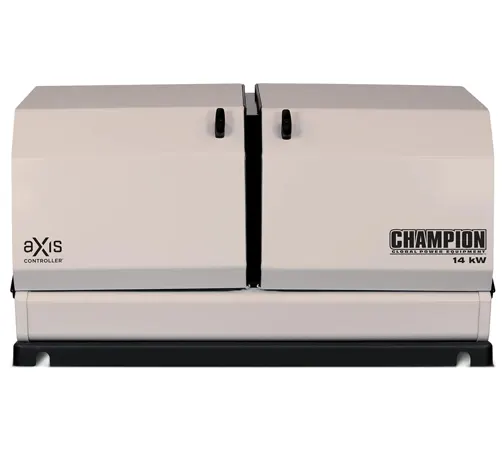
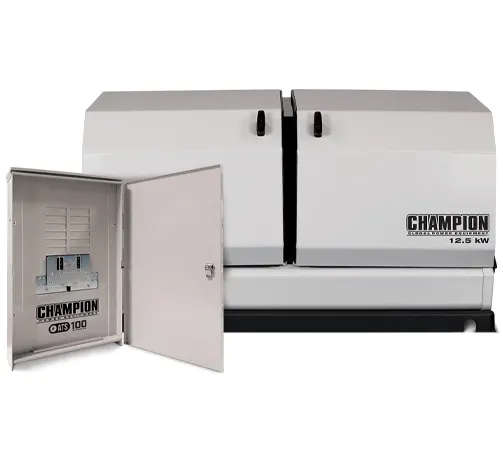
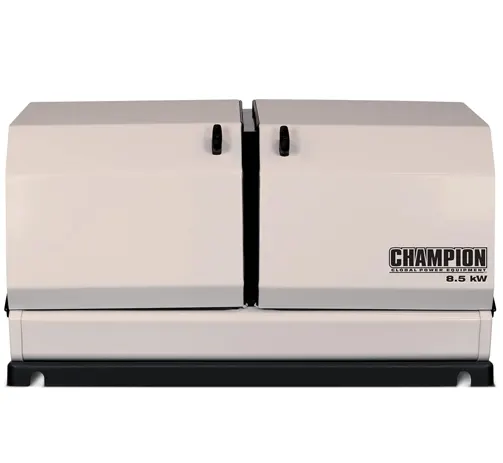
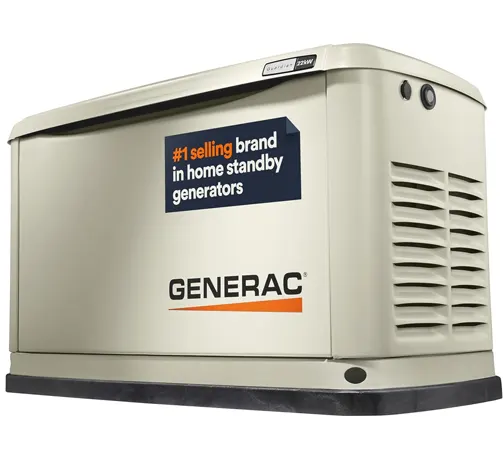
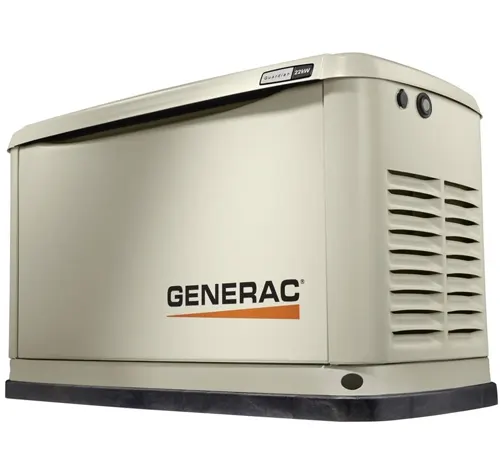
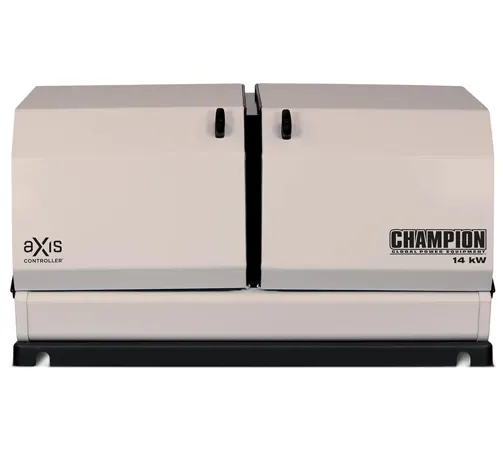
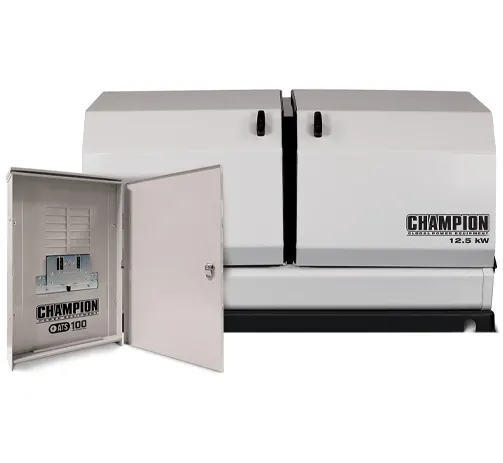
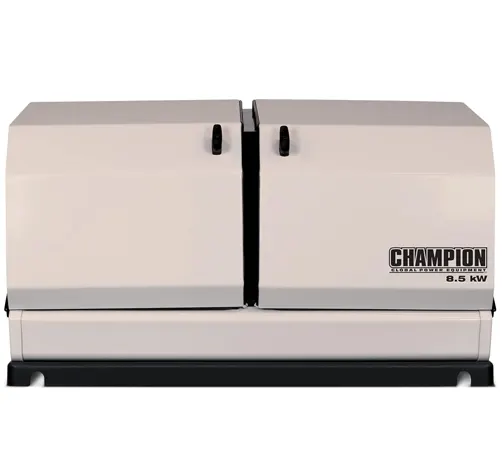












I am interested in further knowledge about LPG/Ng powered generators
Ndubuisi Linus
January 28, 2024 4:22 am